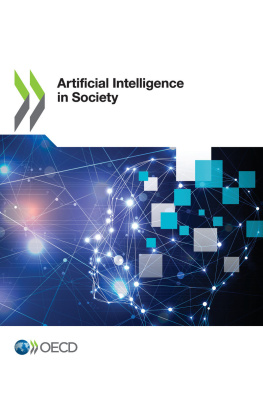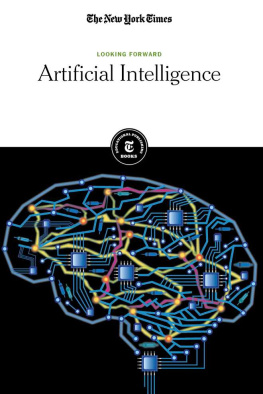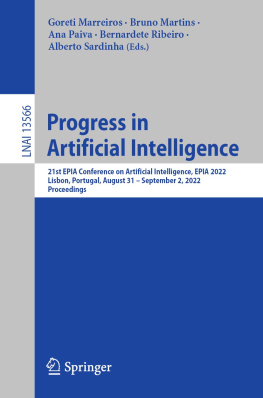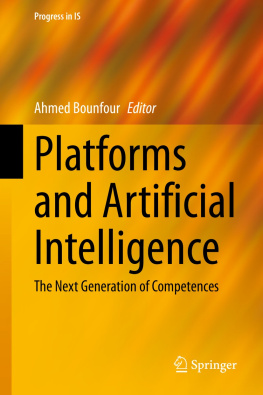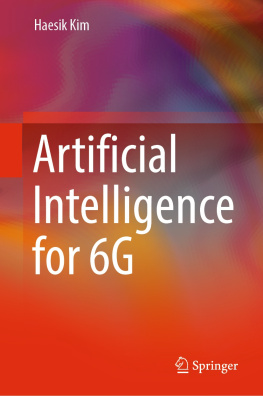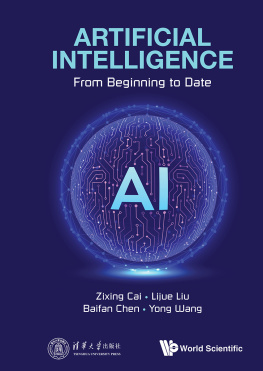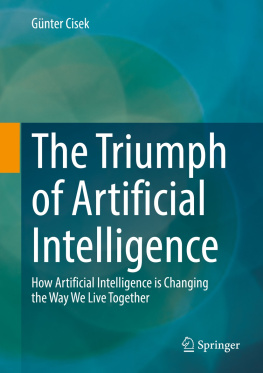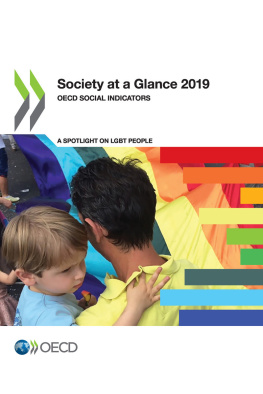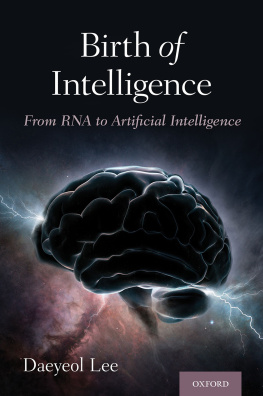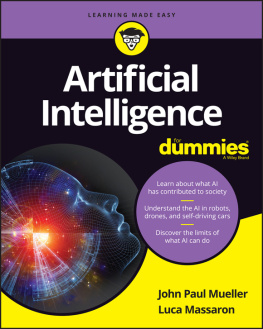OECD - Artificial Intelligence in Society
Here you can read online OECD - Artificial Intelligence in Society full text of the book (entire story) in english for free. Download pdf and epub, get meaning, cover and reviews about this ebook. year: 2019, publisher: OECD Publishing, genre: Politics. Description of the work, (preface) as well as reviews are available. Best literature library LitArk.com created for fans of good reading and offers a wide selection of genres:
Romance novel
Science fiction
Adventure
Detective
Science
History
Home and family
Prose
Art
Politics
Computer
Non-fiction
Religion
Business
Children
Humor
Choose a favorite category and find really read worthwhile books. Enjoy immersion in the world of imagination, feel the emotions of the characters or learn something new for yourself, make an fascinating discovery.
Artificial Intelligence in Society: summary, description and annotation
We offer to read an annotation, description, summary or preface (depends on what the author of the book "Artificial Intelligence in Society" wrote himself). If you haven't found the necessary information about the book — write in the comments, we will try to find it.
OECD: author's other books
Who wrote Artificial Intelligence in Society? Find out the surname, the name of the author of the book and a list of all author's works by series.
Artificial Intelligence in Society — read online for free the complete book (whole text) full work
Below is the text of the book, divided by pages. System saving the place of the last page read, allows you to conveniently read the book "Artificial Intelligence in Society" online for free, without having to search again every time where you left off. Put a bookmark, and you can go to the page where you finished reading at any time.
Font size:
Interval:
Bookmark:
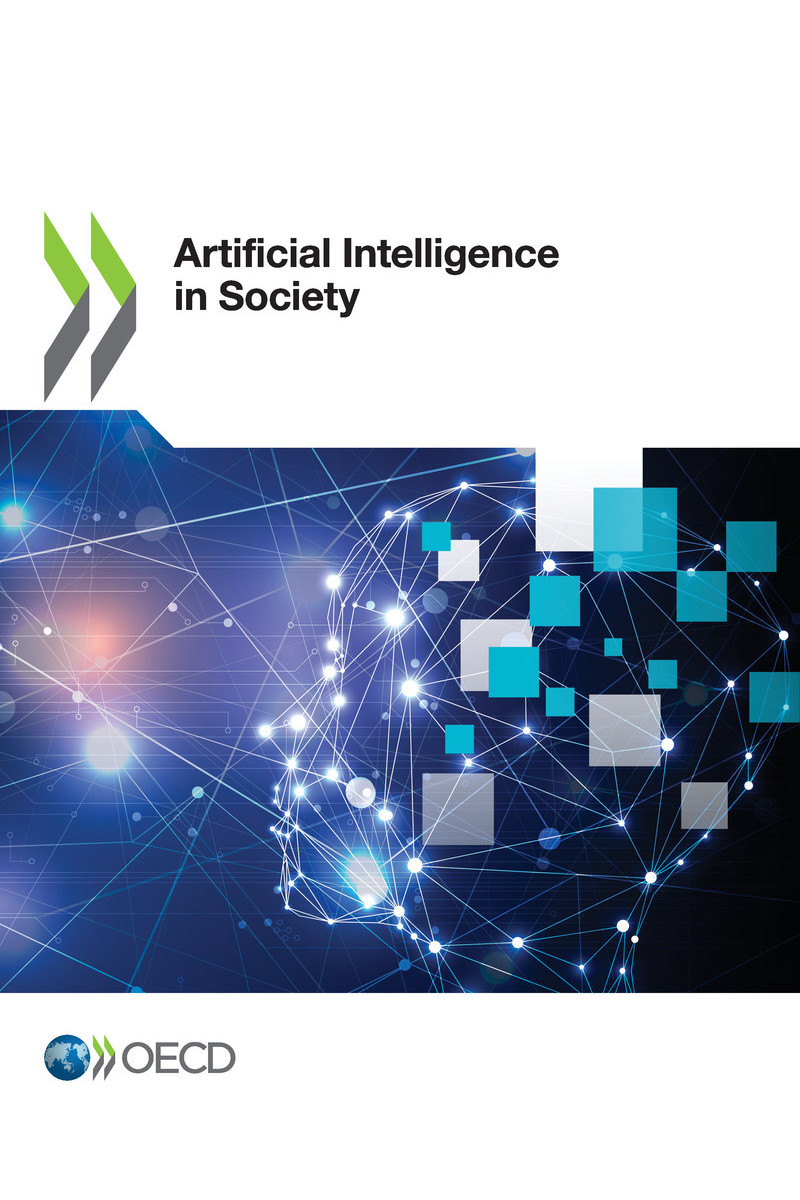
OECD (2019), Artificial Intelligence in Society , OECD Publishing, Paris, https://doi.org/10.1787/eedfee77-en .
Artificial intelligence (AI) is reshaping economies, promising to generate productivity gains, improve efficiency and lower costs. It contributes to better lives and helps people make better predictions and more informed decisions. These technologies, however, are still in their infancy, and there remains much promise for AI to address global challenges and promote innovation and growth. As AIs impacts permeate our societies, its transformational power must be put at the service of people and the planet.
At the same time, AI is also fuelling anxieties and ethical concerns. There are questions about the trustworthiness of AI systems, including the dangers of codifying and reinforcing existing biases, such as those related to gender and race, or of infringing on human rights and values, such as privacy. Concerns are growing about AI systems exacerbating inequality, climate change, market concentration and the digital divide. No single country or actor has all the answers to these challenges. We therefore need international co-operation and multi-stakeholder responses to guide the development and use of AI for the wider good.
This book, A rtificial Intelligence in S ociety , examines the AI landscape and highlights key policy questions. Its goal is to help build a shared understanding of AI in the present and near term, and to encourage a broad dialogue on important policy issues, such as labour market developments and upskilling for the digital age; privacy; accountability of AI-powered decisions; and the responsibility, security and safety questions that AI generates.
The book draws on the work of the AI group of experts at the OECD, formed in 2018 to scope principles to facilitate innovation, adoption and trust in AI. Their debates inspired the OECD Recommendation of the Council on Artificial Intelligence the first intergovernmental standard on AI adopted by all OECD members and by several partner countries on 22 May 2019. This work emphasises the need for international co-operation to shape a policy environment that fosters trust in and adoption of AI.
Looking ahead, we must progress together on AI-related technical, ethical and legal issues, in order to foster the alignment of standards and codes of conduct while ensuring the inter-operability of laws and regulations. This is urgent, given the speed of developments and the breadth of applications. It is thus no surprise that AI is a top priority on national and international agendas including in the G7 and G20.
Adoption of the Recommendation and creation of a global dialogue are vital first steps. But there is much more to be done. With the establishment of the OECD AI Policy Observatory later this year, we are bringing our analytical, measurement and policy expertise to bear on largely uncharted territory. The Observatory an inclusive hub for public policy on AI will help countries encourage, nurture and monitor the responsible development of trustworthy AI systems for the benefit of society.
Moving forward, the OECD is gearing up to move from principles to action. We are determined to help countries implement the Recommendation to ensure that our societies and economies harness the full promise of AI, sharing its benefits broadly and putting the right safeguards in place so that no one is left behind now and for generations to come.

Angel Gurra
Secretary-General
OECD
This book aims to help build a shared understanding of artificial intelligence (AI) in the present and near term. The book maps the economic and social impacts of AI technologies and applications and their policy implications, presenting evidence and policy options. It is also intended to help co-ordination and consistency with discussions in other international fora, notably the G7, the G20, the European Union and the United Nations.
The book builds on the OECD October 2017 Conference AI: Intelligent Machines, Smart Policies ( http://oe.cd/ai2017 ); on the activities and discussions of the AI Group of experts at the OECD (AIGO) from September 2018 through February 2019; and on the OECD Recommendation of the Council on Artificial Intelligence . In turn, it has contributed to the OECD Going Digital project and the OECDs publication Going Digital: Shaping Policies, Improving Lives .
Chapter 1, The AI technical landscape, provides a historical overview of AIs evolution from the development of symbolic AI in the 1950s to recent achievements in machine learning. It presents the work of the OECDs AI Group of Experts (AIGO) to describe AI systems that predict, recommend or decide an outcome to influence the environment and their lifecycle. The chapter also proposes a research taxonomy to help policy makers understand AI trends and identify policy issues.
Chapter 2, The AI economic landscape, discusses AIs role as a new general-purpose technology that can lower the cost of prediction and enable better decisions. Complementary investments in data, skills and digitalised workflows are required, as is the capacity to adapt organisational processes. The chapter also reviews trends in private equity investment in AI start-ups.
Chapter 3, AI applications, considers ten areas that are experiencing rapid uptake of AI technologies transport, agriculture, finance, marketing and advertising, science, health, criminal justice, security, the public sector and augmented/virtual reality. Benefits of AI use in these areas include improving the efficiency of decision making, saving costs and enabling better resource allocation.
Chapter 4, Public policy considerations, reviews salient policy issues that accompany the diffusion of AI. The chapter supports the OECD AI Principles adopted in May 2019, first in terms of values: inclusive growth, sustainable development and well-being; human-centred values and fairness; transparency and explainability; robustness, security and safety; and accountability. Secondly, it outlines national policies to promote trustworthy AI systems: investing in responsible AI research and development; fostering a digital ecosystem for AI; shaping an enabling policy environment for AI; preparing people for job transformation and building skills; and measuring progress.
Font size:
Interval:
Bookmark:
Similar books «Artificial Intelligence in Society»
Look at similar books to Artificial Intelligence in Society. We have selected literature similar in name and meaning in the hope of providing readers with more options to find new, interesting, not yet read works.
Discussion, reviews of the book Artificial Intelligence in Society and just readers' own opinions. Leave your comments, write what you think about the work, its meaning or the main characters. Specify what exactly you liked and what you didn't like, and why you think so.

